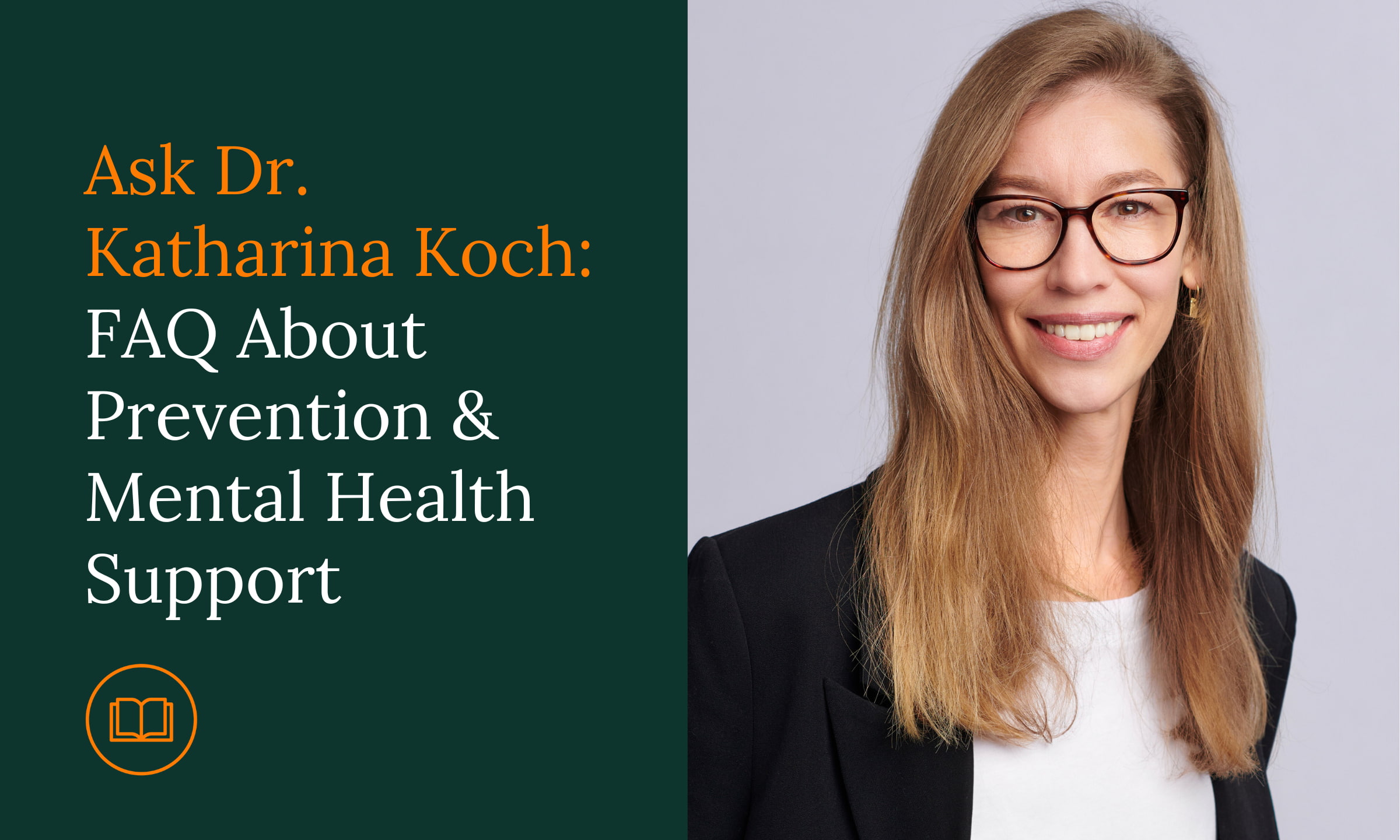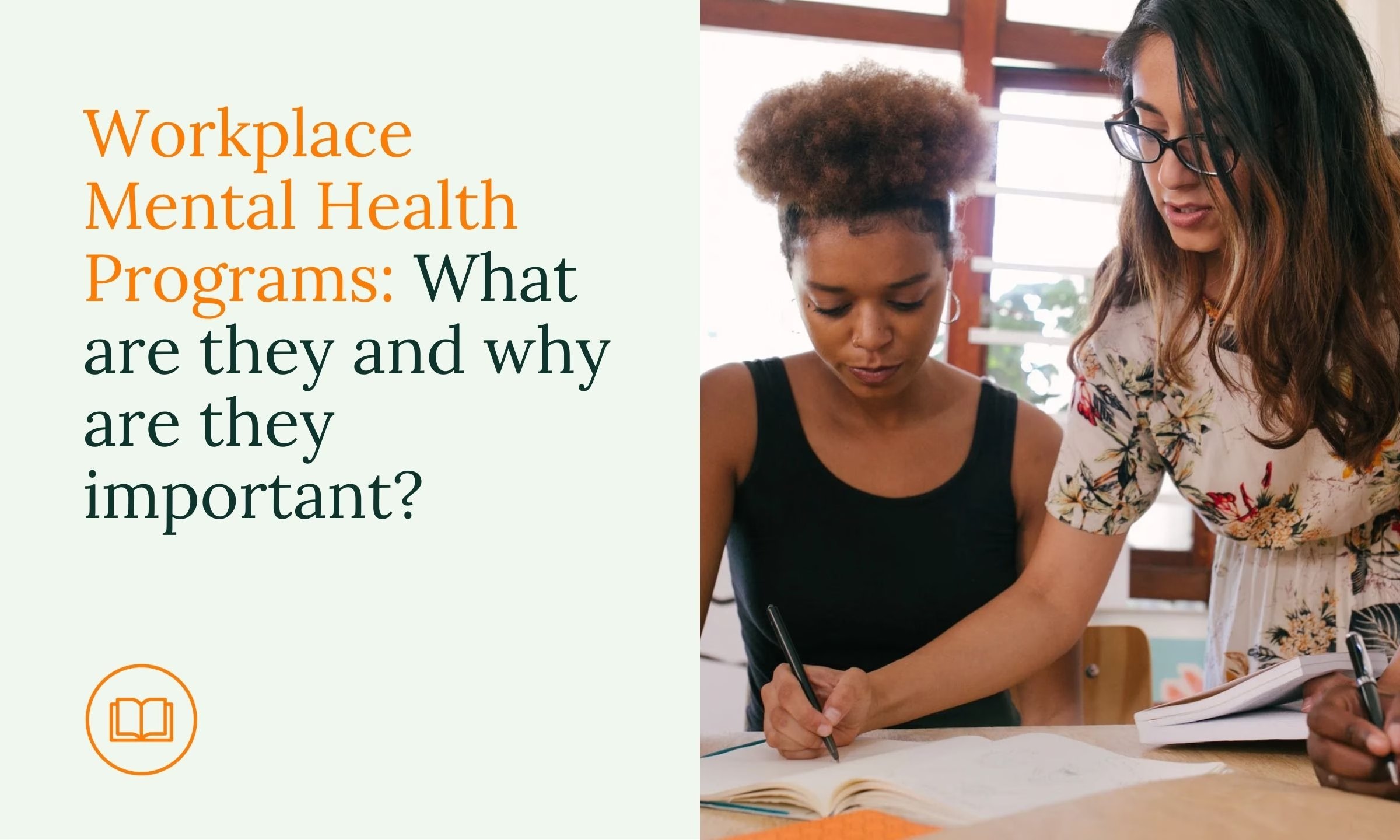Everything you need to know about work, mental health, and HR – from an expert. Join us in our series with Dr. Katharina Koch, a Clinical Psychologist certified in Cognitive Behavioral Therapy and Head of Psychology here at nilo.health.
In this edition Katharina, answers frequently asked questions around preventative mental health care.
What is primary and secondary preventative mental health support?
Does preventative mental health support actually work?
What is primary and secondary preventative mental health support?

What is primary and secondary preventative mental health support?
Most of us know what mental health support is — accessing therapy, talking to a professional, working on our issues, or even doing something as simple as meditating, to help us with problems like stress, burnout, and anxiety.
Well, primary preventative mental health support is exactly the same list of actions. The difference is that we do it before we’re actually experiencing severe symptoms or issues relating to our mental health. We’re doing these things preventatively, so that factors like stress or anxiety (which might cause mental health issues further down the line) are under control.
Think of it in the same way as exercising and eating healthy. We do these things partially because they feel good and because our body needs them. So too does our body need us to build in breaks, reflect, and work on our issues. And we also exercise and eat healthily to prevent health problems down the line. So too does working on things like our resilience, our self-esteem and our ability to self-regulate and calm ourselves prevent mental health problems later on.
And though, like with physical health, we might sometimes think, “I don’t need this, I feel fine” — we’ll be very grateful we had it when times get tough.
Secondary preventative mental health support, on the other hand, is something we can do when we’re already experiencing symptoms. Maybe our anxiety is ratcheting up – maybe we’re having a few sleepless nights per week. Whatever the case, things are feeling worse, but not so bad that we can’t work through them.
However, utilizing preventative mental health support here, at the very onset of symptoms, is a great way to prevent larger mental health disorders down the line. No matter how small your symptoms, it’s never too early to address them and start the work of feeling better.
Does preventative mental health support actually work?
The short answer: Yes! In fact, our latest whitepaper shows that preventative mental health support makes a massive difference. Read our guide to the whitepaper or my last round of FAQs for more information on the data in the whitepaper, but here’s some amazing insights about the power of preventative mental health support to get you started.
Employees who used nilo.health preventatively reported the following:
- 50% said their mood improved
- 44% said their motivation improved
- 41% said their stress levels improved
We also saw a massive leap in overall employee well-being. Overall, preventative mental health support is an effective way to tackle issues before they build to a crisis.
Why is preventative mental health support important for companies?
From a HR perspective, preventative mental health support makes a big difference for company culture and even a company’s bottom line — studies suggest that preventative mental health support can have a 5x return on investment.
This is because:
- You’re not responding to crisis — but solving problems before they build to a boiling point.
- Your team is resilient and stronger: ready to face whatever issues come their way.
- You’ll decrease sick days and increase engagement in your team.
- You keep stress levels low and avoid burnout.
- You increase employee engagement and decrease turnover.
Want to know more? Check out our three-step HR guide to preventative mental health support.







